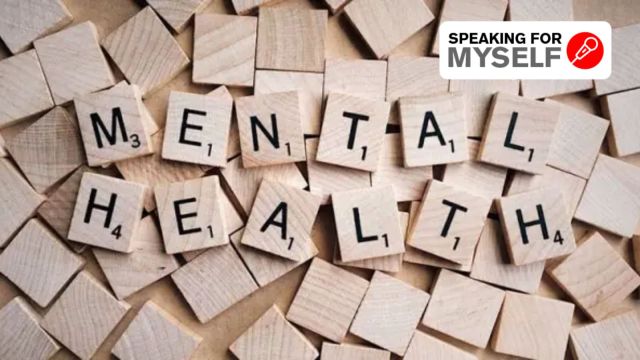
Written by Ashwin Moothedath Asok
All through my childhood, I felt like an old soul. I was the “odd” one out and the continuous bullying and emotional abuse I faced did not help matters. I was made to feel “different”. Due to my circumstances, I couldn’t be a child. I had to grow up fast, be an adult — be the strong, mature one. And for a long time, for almost 24 years of my life, I played that role well. I had good marks, was obedient, and got into medicine. My life was “perfect”, according to many. Little did they know about the constant pain, self-doubt, low self-esteem, worthlessness and hopelessness that I struggled with. I thought that this was normal — this is what adult life entails.
It was in the final year of medical school that the dominoes started falling. I couldn’t keep up the facade. It was as if the darkness spread through my veins and turned my heart blue. Luckily, I had parents and friends who went out of their way and supported and helped me. But again, neither they nor I understood why I felt all this pain and hurt. By the end of my final year, I had given up dancing — one of the main outlets for my emotions. That was when I started realising that I didn’t want to be “strong” anymore. As I passed my final year exams (one of the toughest exams I ever sat for), I didn’t feel any joy. Just fatigue and pain.
That’s when I took the first step towards healing. I asked my brother to accompany me to a psychiatrist. Again, I was lucky to have a brother who was non-judgemental (even though he didn’t completely understand what I was going through) and went with the flow. Around mid-2016, I was diagnosed with depression and later started on antidepressants.
The journey through depression has not been easy. It came with a lot of stigma, misunderstanding, self-loathing, broken relationships and guilt. Many people close to me gave a lot of advice: “You don’t need medication, just do some exercise/be active, push your limits!” The question is: How could someone who is almost in pieces push oneself?
For a long time, I took a break from people and focussed on myself. I felt misunderstood. I missed my convocation, which was the culmination of five-and-a-half years of hard work in medical school. But I couldn’t bring myself to attend it, which, again, came with a lot of guilt.
Gradually, with medication, I started feeling better. That was my first stint with depression. The first episode was the scariest and loneliest. It took a long time to understand, react and reflect on it, but overcoming it made me more confident. I realised that even if this happens again, “It shall pass”. I have stuck with my antidepressants (“magic pills” is how I like to describe them) because I can see the difference they make. My energy levels were back, it felt like the darkness within me was contained.
For a long time, I wasn’t sure about what speciality to choose. Later, I started working in Oncology (loved it!) during which my patients taught me what matters in life. You matter; your happiness matters. That led me to my calling — psychiatry. I chose psychiatry because I wanted to help people like me — and in turn, perhaps, help myself. Eventually, I moved to the UK because I wanted to escape the past, start afresh and pursue my dreams.
During the last three years, I have been diagnosed with combined ADHD (many people had suggested I might have it earlier, too). The diagnosis gave me a further understanding of why I am the way I am. Over the years, I have had few episodes of depression. I slowly started practising the treatment plan I suggested for my patients — a biopsychosocial management strategy. This included medication, talk therapy — and choosing myself. Along with this, the safe space provided by my chosen family helped me be authentic and allowed me to introspect and be better.
With all the support, love, and care from myself and others, I passed my Royal College of Psychiatrists Membership exams in 2023 and attended the New Members’ Ceremony with pride, self-love, and immense gratitude.
As a psychiatric doctor with lived experience, I have a few messages for anyone who struggles with mental health issues: Get professional help. Having depression is like wearing sunglasses — initially, everything is dark and then you get comfortable with the darkness. Please don’t get comfortable with the darkness; there is light all around. It takes immense courage to speak up, but you don’t have to suffer alone. Please talk to a qualified mental health professional or anyone you can trust. Mental health struggles are just like any other illness — you might need medication and social and psychological support. And that’s okay. You wouldn’t feel guilty for taking medication for an infection. So, please don’t feel guilty for getting help. Consider it surgery for the mind!
No disease defines who you are as a person.
Lastly, for anyone caring for someone with mental health issues, the first step would be to educate yourself and take care of yourself. The carergiver’s burden is heavy too, and it is important to acknowledge that.
I consider psychiatry my saving grace and I feel privileged to help people who suffer as I have. It is a form of therapy I have chosen for myself. Please choose yourself and get the help you deserve! There is always plenty around.
Ashwin is a Psychiatry Trainee doctor in the National Health Service (NHS) UK